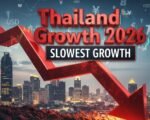Emerging technologies are not just shaping industries; they are redefining the very fabric of our society. As nations and corporations vie for dominance in this arena, the outcomes will significantly influence our collective future.
The advent of the printing press is often hailed as the catalyst for the modern era, enabling the widespread dissemination of scientific ideas and revolutionary thoughts. However, as Yuval Noah Harari points out, the story is more nuanced. The printing press also facilitated the spread of conspiracy theories and fake news, leading to social upheavals like witch trials. It wasn’t until institutions regained public trust that the scientific and philosophical revolutions truly took hold, approximately two centuries later.
General Nick Carter, former UK Chief of Defense Staff and board member of Apolitical, draws parallels between historical and current technological shifts. “Just as the printing press was a double-edged sword, today’s technologies like artificial intelligence and blockchain have the potential to both empower and disrupt societies,” Carter remarked during the recent International Tech Conference.
The Modern Technological Battlefield
Robyn Scott, CEO and co-founder of Apolitical, emphasizes the competitive nature of the current tech landscape. “We are witnessing a global race where the victors in emerging technologies will dictate the terms of economic and social interactions for decades to come,” she stated. Scott highlights that countries investing in AI, quantum computing, and renewable energy technologies are positioning themselves for future dominance.
The Role of Trust in Technological Adoption
Trust remains a critical factor in the successful adoption of new technologies. Harari’s insights underscore the importance of institutional integrity. Without trust, even the most groundbreaking innovations can falter. Institutions today must prioritize transparency and accountability to foster public confidence, ensuring that technological advancements lead to positive societal outcomes.

Strategic Investments: Building a Resilient Future
Governments and private sectors are increasingly channeling resources into research and development to stay ahead in the tech race. Investments in education, infrastructure, and innovation ecosystems are pivotal. These strategic moves not only drive economic growth but also ensure that societies are equipped to handle the ethical and social implications of emerging technologies.
- Artificial Intelligence: Enhancing decision-making processes and automating complex tasks.
- Quantum Computing: Solving problems that are currently intractable with classical computers.
- Renewable Energy: Transitioning to sustainable energy sources to combat climate change.
- Biotechnology: Advancing healthcare and extending human capabilities.
Challenges on the Horizon
While the potential benefits of emerging technologies are immense, several challenges loom large:
- Ethical Concerns: Ensuring that technologies are developed and used responsibly.
- Regulatory Hurdles: Crafting policies that balance innovation with public safety.
- Digital Divide: Addressing disparities in access to technology to prevent further societal fragmentation.
- Security Risks: Protecting against cyber threats and ensuring data privacy.
Embracing a Balanced Approach
Achieving a balance between harnessing technological advancements and mitigating their risks is crucial. As Carter aptly puts it, “It’s not just about who wins the race, but how they win it.” A collaborative approach involving policymakers, industry leaders, and the public is essential to navigate the complexities of technological evolution.
Table: Projected Growth Areas in Emerging Technologies
| Technology | Current Investment (USD Billion) | Projected Growth (2024-2030) |
|---|---|---|
| Artificial Intelligence | 150 | 300 |
| Quantum Computing | 20 | 100 |
| Renewable Energy | 200 | 500 |
| Biotechnology | 80 | 250 |
This table highlights the significant investments and anticipated growth in key emerging technologies, illustrating the areas where the most substantial advancements are expected.
Voices from the Frontlines
Stakeholders across various sectors express optimism tempered with caution:
“AI has the potential to revolutionize industries, but we must implement robust ethical guidelines to prevent misuse,” says Dr. Aisha Bello, a leading AI researcher.
Meanwhile, entrepreneurs like Tunde Adeyemi emphasize the importance of inclusivity. “Ensuring that emerging technologies benefit all segments of society is not just a moral imperative but a pathway to sustainable growth.”
The Path Forward: Building on Trust and Innovation
As we stand on the cusp of unprecedented technological change, the lessons from history remind us of the importance of trust and responsible innovation. Institutions must earn and maintain public trust to harness the full potential of emerging technologies, ensuring that progress leads to equitable and sustainable outcomes.
- Historical Insights: The printing press was both a catalyst for progress and a source of social turmoil.
- Current Tech Race: AI, quantum computing, and renewable energy are at the forefront of global competition.
- Trust is Crucial: Institutional integrity is essential for the successful adoption of new technologies.
- Strategic Investments: Focused funding in key areas can drive economic and social advancements.
- Balancing Act: Navigating the benefits and risks of technology requires a collaborative and ethical approach.
Metaphor: Technology as a Double-Edged Sword
Emerging technologies are like a double-edged sword—capable of cutting through barriers and forging new paths, yet also posing risks if not handled with care. The key lies in wielding this sword with wisdom and foresight.
Emotional Insight: Hope and Responsibility
The rapid pace of technological advancement brings a sense of hope for a better future, but it also carries the weight of responsibility. Ensuring that these technologies are developed and implemented ethically is paramount to realizing their full potential without compromising societal values.








